Cope with the Virus!
Three Aims for this page - to help you cope with the virus with fever
- "Let Fever be your Friend"! The benefits of Fever!
- Understand the potential dangers of fever.
- How to become more resilient against fever.
Cope with Fever!
Cope with the virus with Fever! Chinese medicine has a similar 'energetic' outlook on health to homoeopathy. Though its treatment methods are different, we can still learn from it!
Yes, Fever is your body’s first response to invaders like bacteria and viruses, including influenza, common colds, coronavirus (Covid 19) and so on. These, in Chinese medicine, are ‘warm diseases‘.
Bit fever is a blunt instrument! Ideally, it may speed up deployment of antibodies to the invader, but in any case, boiling the bug alive has worked well for quite a few million years or so. It’s been tried and tested! It does cope with the virus!
Of course, you don’t actually need to reach boiling point – 100C!
Just a few degrees higher than normal does the trick. Just over 40 will do, though your body may not need to reach this to kill the invader.
That’s because when the invader arrives, your temperature (oral ie under the tongue) is probably ‘normal’, and the invader lives, indeed thrives happily at that temperature.
This ‘normal’ temperature, shared with most other people, is 37.4C or 99.3F. (Even that’s not quite right because the normal under-the-tongue or oral level is a bit lower normally at 36.8C as compared with the ‘normal’ rectal or vaginal temperature which is about 37.0C.)
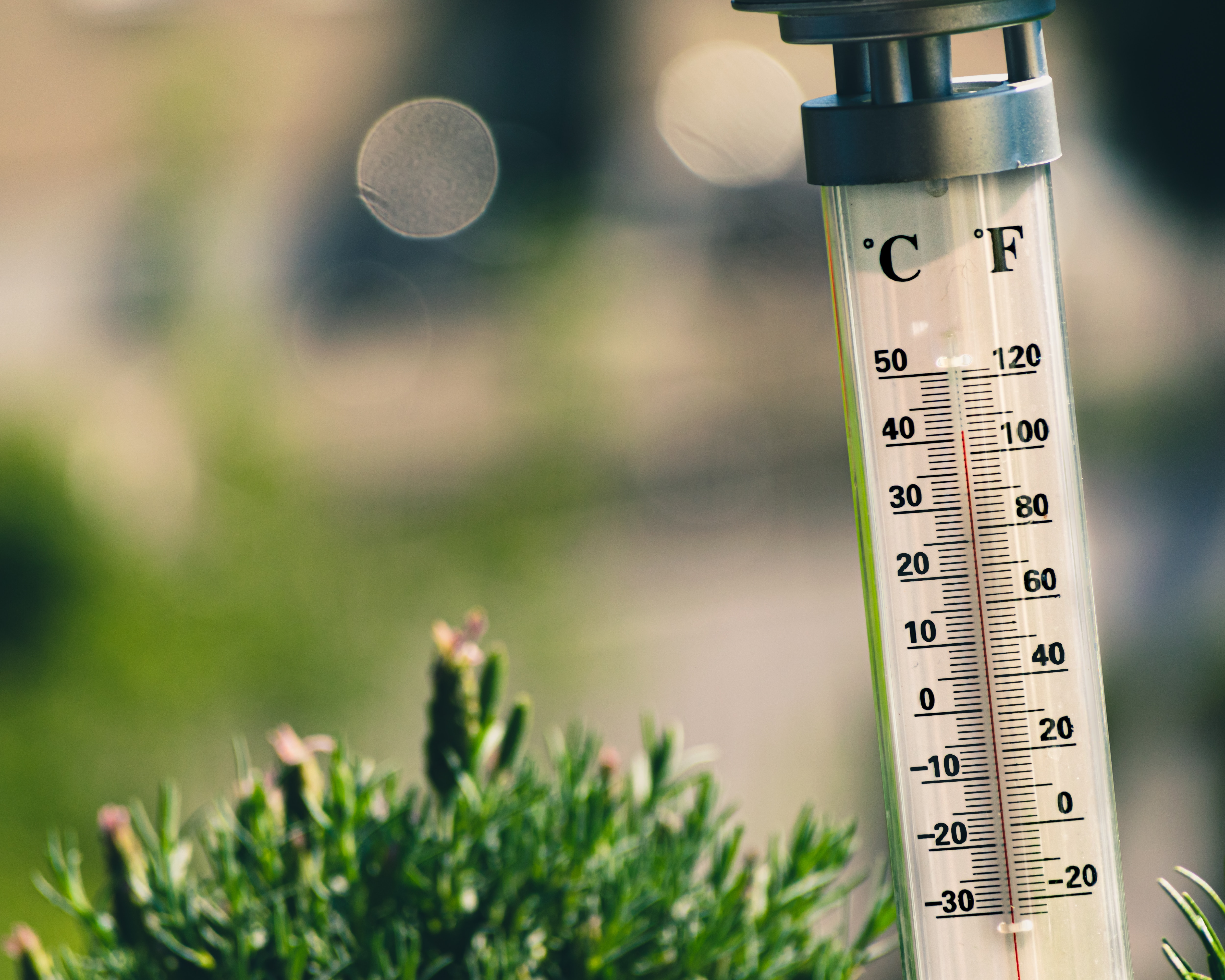
Photo by Jaroslaw Kwoczala on Unsplash
So the 37.4C (99.3F) is your internal body temperature.
Anything more than 0.5C above ‘normal’ may be considered a fever.
But when your body raises its temperature to 40C or so, life becomes very unpleasant for the invader and it tends to die.
When it realises the invader is dead, your body does a bit of clearing up and then brings itself down to ‘normal’ again.
Easy! You cope with the virus with fever! Job Done!
Well, job done maybe, but at a price!
You and your body are quite intimately connected and you’ll have been involved in every second of the action as you cope with the virus.
If you haven’t allowed yourself to have a fever for a while, you won’t know what it brings. Nowadays we have powerful modern medicines that force our bodies to reduce their fever, reduce inflammation and make life a bit more pleasant.
In effect they suppress your body’s natural fever response.
That’s because fever is not pleasant. However, as explained, unless your body produces antibodies to the invader, either by discovering and manufacturing new ones or by remembering how it coped with the virus or one like it before, both of which are plan B, it’s forced back to plan A, which is fever to cope with the virus.
And if you stop or suppress the fever, it can’t do the job: it may not be able to cope with the virus! So the invader lives to fight another day, possibly in someone else, because every time you cough or sneeze you’ll be spraying the invader out into your environment where some innocent will inhale it.
Just to repeat that … if your body can neither find or create the necessary antibodies, nor achieve the fever it needs to kill the invader, the virus/bacteria/bug lives to fight another day in someone else, and potentially in YOU again!
Logically, that means that people who - lacking the antibodies or the vaccine - can't raise a fever to quell the invader, remain contagious to the rest of us. And themselves. Indefinitely!
If this logic is correct, anyone with the virus who habitually takes anti-inflammatory medicine may remain contagious. That could include a lot of people.
Common symptoms of flu, coronavirus etc
- fever/chills,
- aches
- muscle pain and heaviness
- headache
- fatigue: extreme – you may be unable to stand, get dressed, open a tinloss of appetite
- nausea perhaps
- cough – often dry
- sore throat
- runny nose - though with the coronavirus the nose is not runny but has thick phlegm: sniffing up and gargling with warm salty water may help to thin and clear it
- pain when moving the eyes
- sometimes – dizziness
- Of course, people get other symptoms which are individual to their particular constitutions
Vaccine?
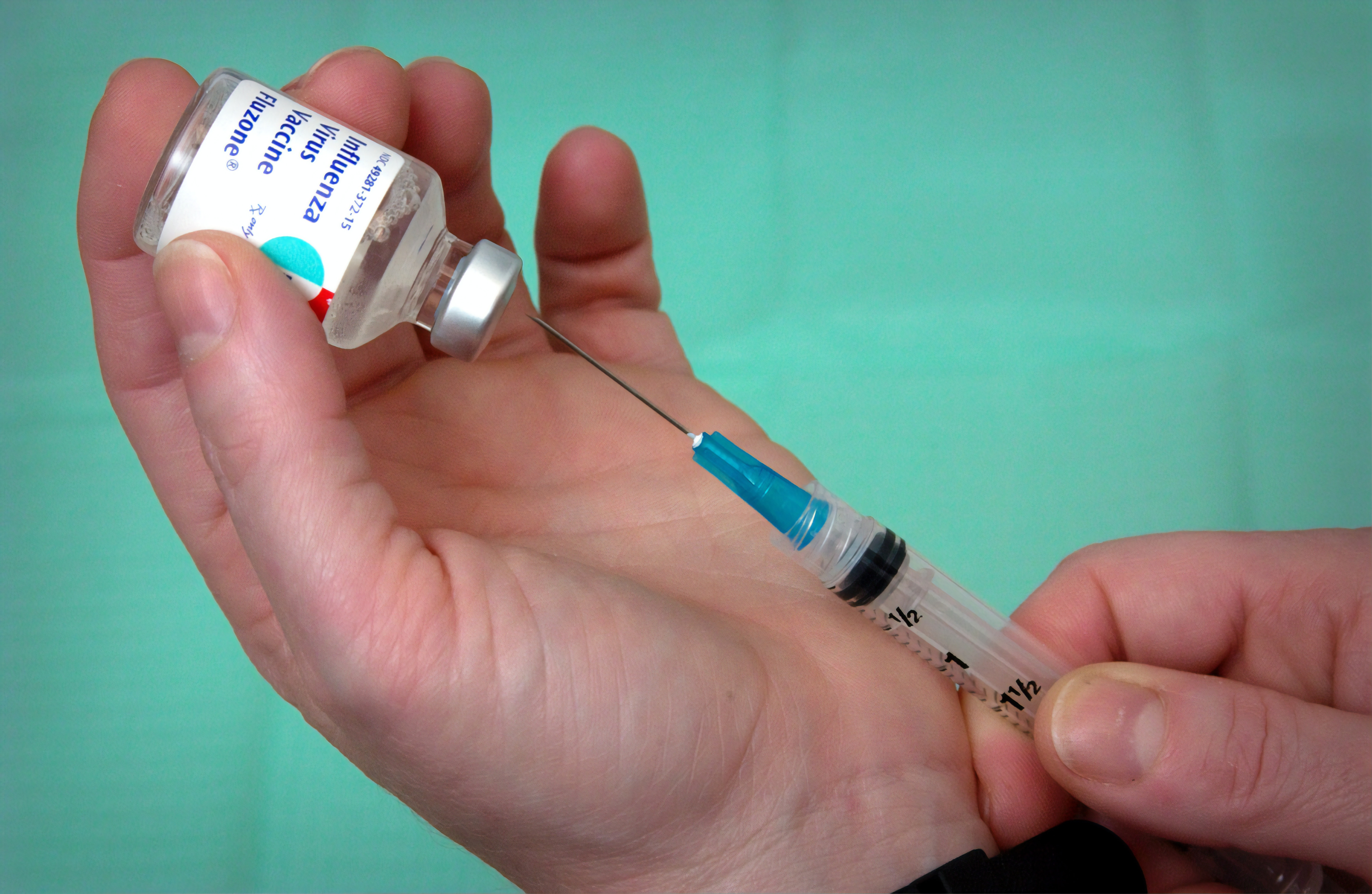
Photo by cdc on Unsplash
If we had an effective vaccine, theoretically we would neither catch the disease nor spread it. However, I have my doubts because viruses can exist for long periods in people who have no symptoms but can still spread it.
Besides, being vaccinated doesn’t enable you to cope with the virus when it's a different ‘flu bug!
Anyway, against coronavirus there is as yet (March 2020) no vaccine so again, we’re back to the body’s plan A: fever.
Also, there is doubt as to whether vaccinations against ‘flu-like bugs are as effective as claimed. If so, that means, especially for babies under 2 and the elderly, the ‘flu vaccine is relatively ineffective. For more on this, see https://articles.mercola.com/sites/articles/archive/2020/02/25/cochrane-collaboration-flu-vaccine.aspx
And taking antibiotics for ‘flu or similar viruses may be dangerous (https://www.wddty.com/news/2019/07/antibiotics-can-make-flu-deadly.html)
Avoid Contagion
Read the page on influenza, SARS and coronavirus for ideas on how best to avoid infection, though some of that information is also on this page.
Who Copes with Fever
This page is about how to cope with the virus with a fever.
Usually babies and children have fevers as they learn the ropes about life. By the time they grow up they’ve fortunately forgotten how unpleasant fever was.
Because it is unpleasant. But to kill the bug, you need a good one. So what happens in a fever, how can you prepare for it, and how do you recover from it?
And what are the dangers both during and afterwards?
Personal Note
If you are wondering whether I’ve had the coronavirus - covid 19: no I haven’t. (Read about me here.)
And I hope I don’t get it. Nor have I treated it.
And although I’ve read reports of Chinese medicine being used to treat it in China, I don’t know exactly what they’ve done.
Still, I can make guesses – from my knowledge of Chinese medicine – about their reasoning and my experience of seeing influenza in patients.
But I personally have certainly had fevers, good ones, the last such being over 20 years ago when I caught something from one of my children.
I took my own advice (for a change) and had a most unpleasant night of it.
When I awoke the next morning, I was drenched and my temperature had returned to normal.
And I felt really well!
Because, make no mistake, if you are lucky enough to have a successful - or effective - fever, one that doesn’t endanger your life, the process of boiling the bug alive also naturally burns up a whole lot of other debris in your body.
After it, you often feel great!
Note on Chinese Medicine and Fever
Chinese medicine has been in recorded use for well over 2000 years, and one of its seminal works was written ~2500BC.
Then, around 700 years later ~200AD appeared another important work that dealt with what are called ‘Cold’ diseases.
Cold diseases were observed to go through up to Six stages.
1500 years later in the mid-18th Century, a brilliant Chinese doctor wrote about what are called invasion by ‘Warm’ diseases. This theory is that of the Four Levels.
Influenza and similar diseases are nearly always ‘warm’ diseases so the way to recognise and treat influenza, corona-viruses and the like is as described in this Four Levels theory.
This page discusses how best to prepare for then cope with fevers as they appear mainly in the second of the four levels, called the ‘Qi’ level.
I don’t pretend to know everything about this current outbreak of corona virus and expect to improve this page as I learn more.
As you read on, you’ll see I introduce concepts in Chinese medicine. In many cases I use analogies to explain things. That means there is simplification which can mean that more subtle ideas are lost.
Usually, text in italics indicates something to do with or being explained by Chinese medicine theory.
Warm-Damp Diseases like 'flu, Coronavirus etc
In nearly every case of influenza and the like, the diagnosis in Chinese medicine is ‘Damp-Heat’. It’s a way of saying that bugs like influenza, corona virus, SARS and the like, prefer a warm damp environment.
So if you want to avoid the illness, don’t provide it with warm damp conditions.
And be extra vigilant in warm damp environments.
To understand what are called ‘warm diseases’ and how Chinese medicine regards them, read:
- Four levels, especially the bit about the ‘Qi’ level (but it’s a bit technical, I’m afraid) and
- Lung Heat
Where do you find warm damp environments?
- bodies
- crowded buses and trains
- hospitals
- schools
- nurseries
- bed
- kitchens
- steam rooms
- sauna
- swimming pools and changing rooms
- car interiors when the heating is turned on
- food and drinks
- cleaning cloths
- drying cloths
- used handkerchiefs or paper tissues
- shared beds
- making love
- mouths and kisses
In all these places, the virus will survive for longer. Of course, chemicals added to water in swimming pools may be enough to kill it.
But don’t forget your pockets. If there’s a virus on something you put in a pocket (like your hand?!), your pocket being probably nice and warm, it will happily spread to anything else you put in there, like your cash, handkerchief, wallet, keys …
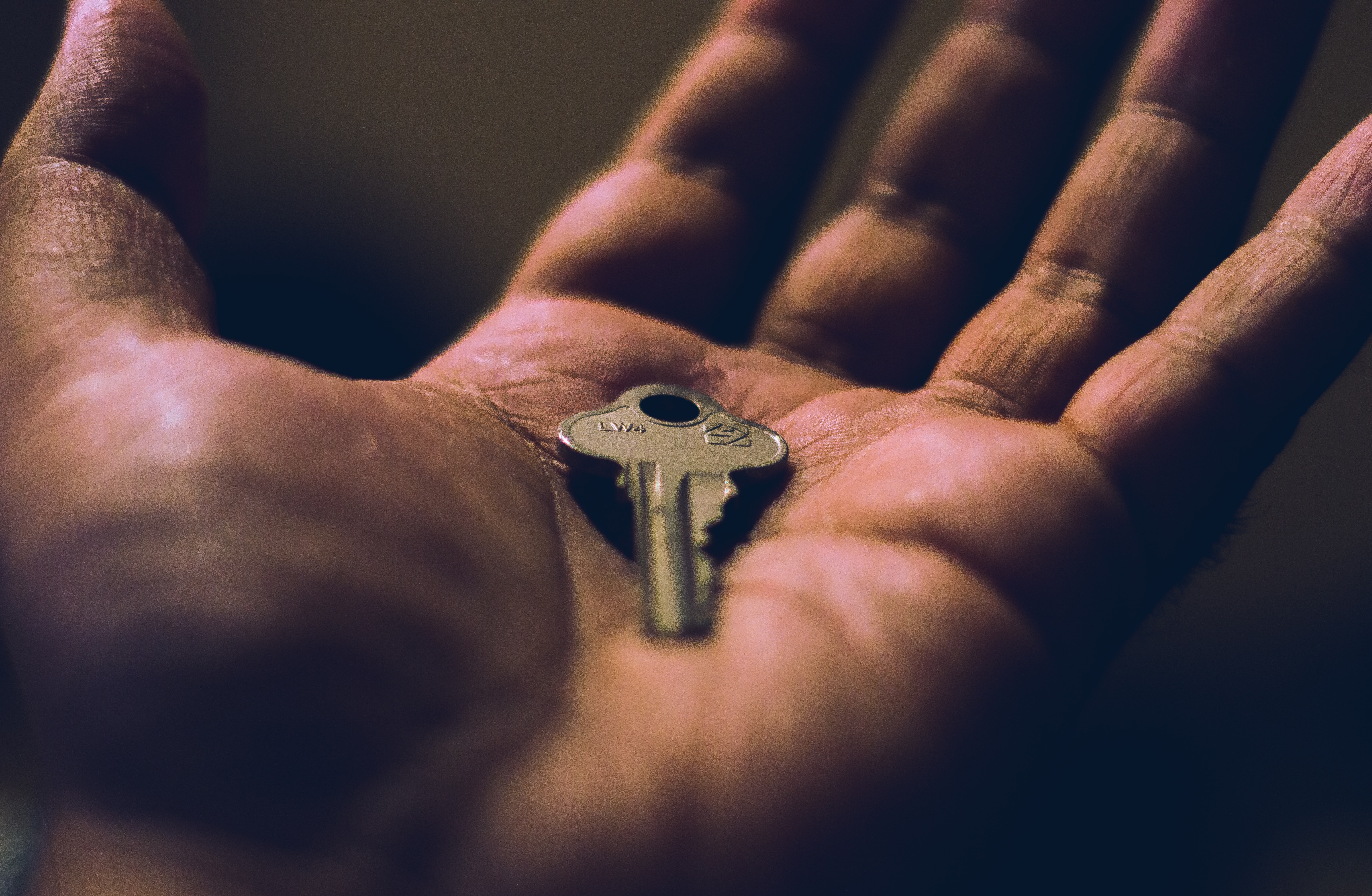
Think also about how you exchange things!
Anything physical you give or receive or share may be covered in the virus.
- cash (this disease may be another nudge towards a cashless society)
- cheques (yes, some of my patients still use them!)
- notes for money, eg dollar bills, pound notes
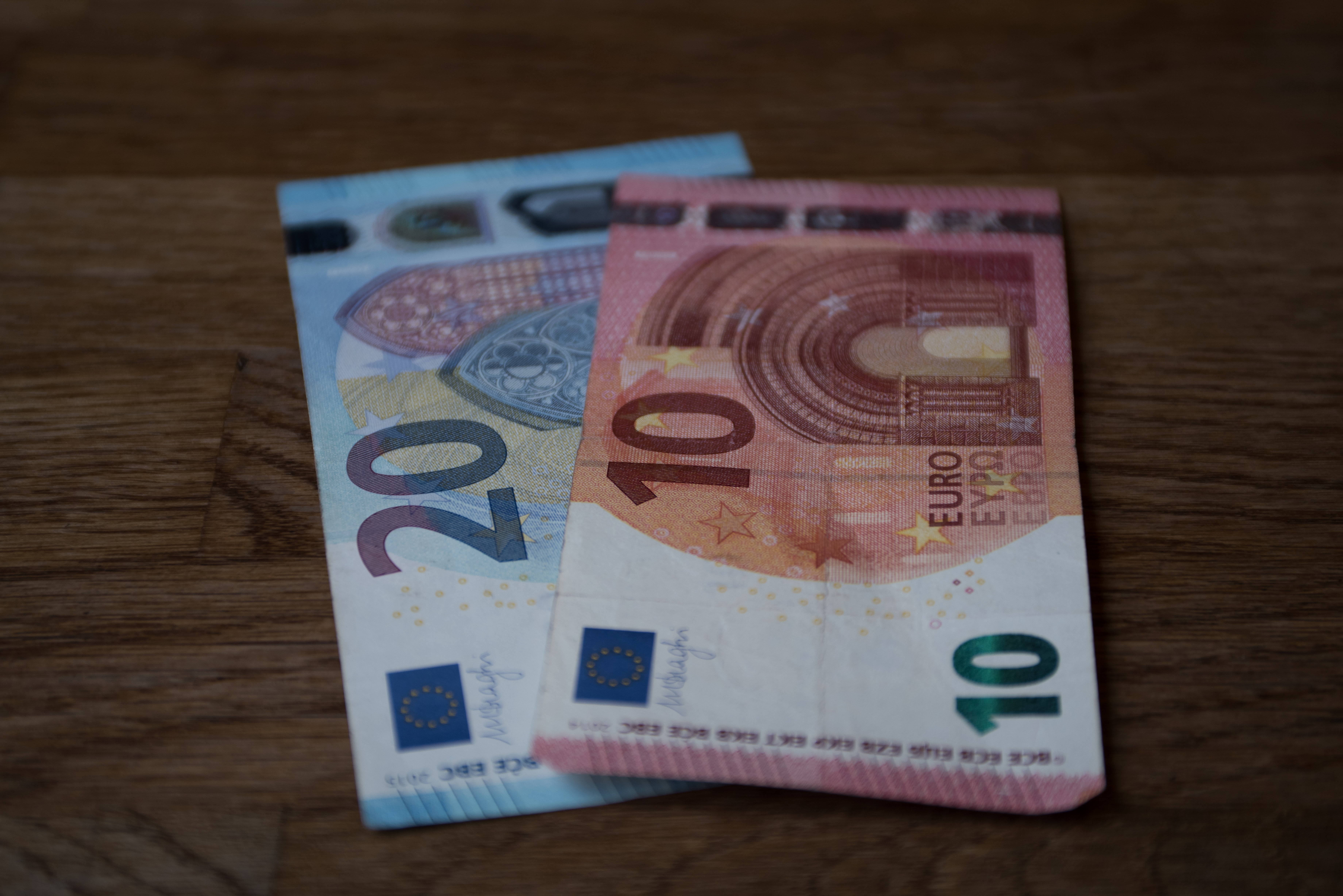
- ATM terminal keypads
- shared computer keyboards
- keys that you keep in warm pockets
- purses, wallets etc, also kept in warm pockets
- This virus can apparently live for up to 12 hours on metal, and on fabric for between 6 and 12 hours
- communion wine cups: the Church of Scotland already often uses individual thimblets for communion wine. It may be that when receiving communion we should bring our own mugs!
Wash Hands in Hot Soapy Water!
- Thorough washing your hands, regularly, in hot soapy water (ordinary soap is best! Not fancy stuff!) This should kill and clear the virus.
- Cut nails short so the virus cannot lurk there.
- But even that’s not much use if you habitually put hands to face, mouth, eyes or nose in between washing, after touching public railings, handles, banisters, light switches, lift buttons and shaking hands. Etc.
- The only good reason for wearing a mask is to remind you NOT to touch your face!
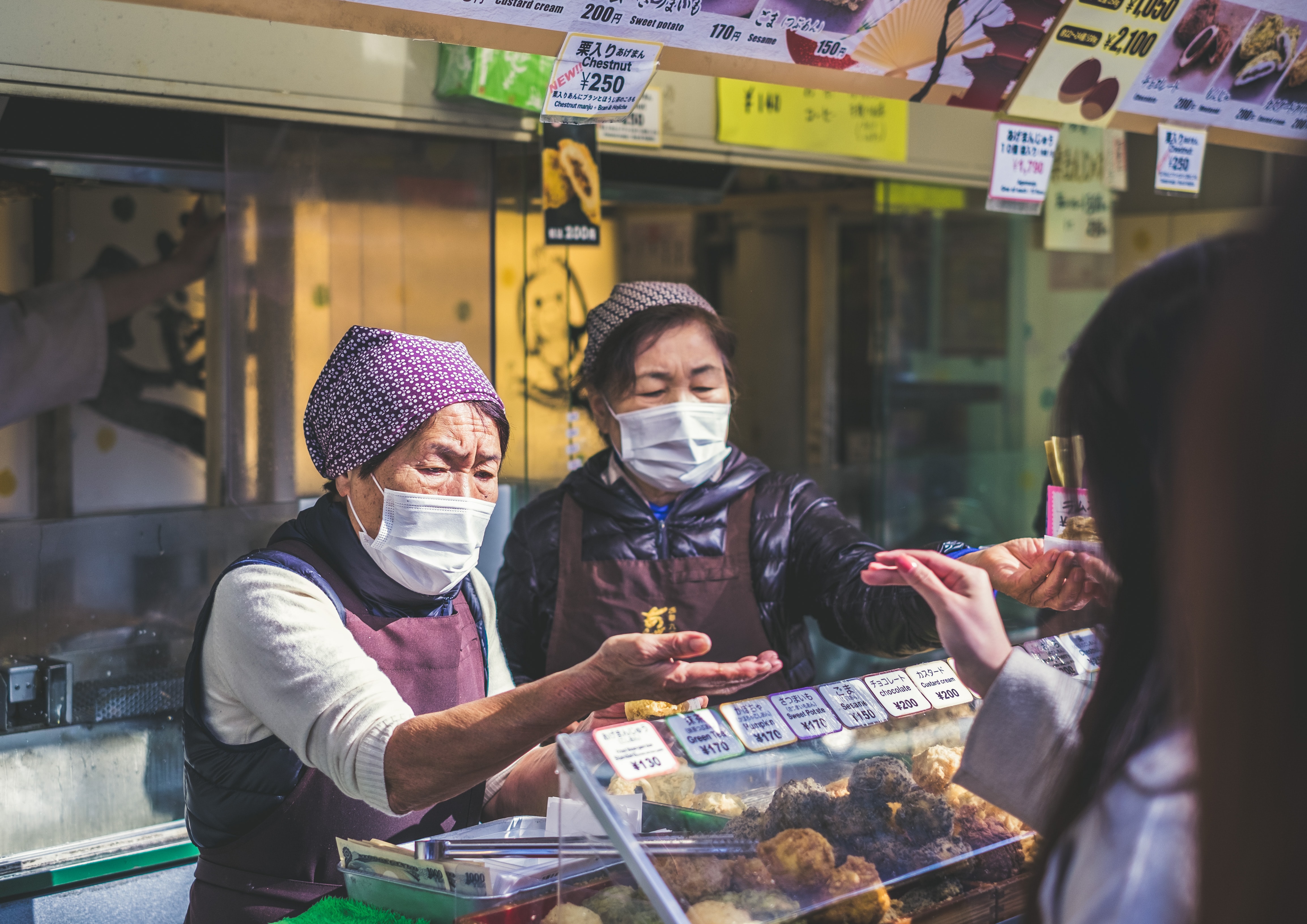
- Photo by Jérémy Stenuit on Unsplash
- The only good reason for wearing a mask is to remind you NOT to touch your face!
Fever Dangers
Fever can be dangerous.When it goes too high, you may get convulsions. Children are susceptible to this: they have small bodies (not much yin to balance yang) and huge yang potential (when well, they move lots, are usually noisy and demanding, and often warmer than adults). When their bodies encounter an invader, their temperature can soar rapidly – within minutes.
Soaring yang energy blocks the downward flow of Blood from the head, leading to convulsions – seizures, although this is rare.
Even if you are not a baby but you already have inflammation, this may worsen.
Inflammatory-type diseases include:
- inflammatory bowel disease
- rheumatoid arthritis and many long-term joint problems
- systemic lupus erythematosus,
- multiple sclerosis
- acne vulgaris
- auto-immune diseases
- asthma
- celiac disease
- prostatitis
- colitis
- diabetes
Many diseases have a level of inflammation even if not classified as inflammatory-type, and include
- some forms of cancer
- hay fever
- periodontitis (gum disease)
- atherosclerosis
For these you may be taking anti-inflammation medication, such as
- Non-steroidal anti-inflammatory drugs (NSAIDs) such as
- Naproxen
- Ibuprofen
- Diclofenac
- Aspirin – though this is seldom prescribed nowadays
Fever is heating and drying (yang qualities). That drains your reserves. In Chinese medicine these are your Yin reserves, so you become (Yin) deficient of fluids and energy, including immune energy.
With diminished reserves you are more susceptible to other bugs.
These might include:
- Pneumonia Since your lungs are (in Chinese medicine) in charge of your immune system, they often get the most battering, making them more susceptible to other diseases, of which the most common is pneumonia. Pneumonia can be treated with antibiotics, unless it’s the viral form. If viral, your doctor may deploy medications like oseltamivir (Tamiflu) though there are problems with these too.
- Tuberculosis Another possible disease is TB which is rife in many countries and now re-appearing in so-called developed countries. TB is increasingly resistant to antibiotics.
What if you can't achieve a good fever?
An effective fever might, in a healthy child or healthy adult, last only a few hours, and not be very high.
Another adult might achieve a higher fever and for it to be effective need to maintain it for a day or more. (Effective? That means effective in the sense that the fever kills the invader so it cannot transmit to anyone else, or you - again.)
What about people who do not have the energy to achieve an effective fever? Or, because necessary medication to control other symptoms also stops their bodies achieving enough fever to kill the invader?
Logically, if their bodies have the 'flu or coronavirus and they don't have antibodies to it, they will continue to be able to transfer it to others.
They may therefore continue to be infectious to the rest of us.
Also, the additional source of inflammation from the virus will need to be controlled, indefinitely. It will remain, at least until and if their bodies achieve antibody production, as ongoing low level fever, depleting their resources, controlled by medication.
As usual with yin and yang, if you deplete yang you end up with more yin ie ongoing low-level problems. It is better to have a short sharp yang response which does the job effectively.
Understand how to cope with the virus via Chinese medicine theory
In a drought, surface crops quickly dry out. Trees may live longer because their roots go deeper to harness moisture even low in the water table.

Tree roots go deep – Photo by O12 on Unsplash
That ‘hidden’ water table is the yin we’re interested in here. In your lungs, it’s not the moisture on their surface that matters, its their ability to maintain a cooling and moisturising action.
During a fever, your body heats up, a yang action. Too much yang quickly dries things, like the hot sun in a hot country. You need the Lung Yin energy to counter that yang. Some of the following advice is to accustom your body to what it must do to preserve that Lung Yin energy.
How to Cope with Fever
This page tries to explain in English how Chinese medicine regards and can help you cope with the virus. What follows uses some of the concepts of Chinese medicine. Usually you’ll find a link to a page explaining the concept.
I’ve mentioned one concept already: yin. This makes no sense unless you have yang to compare it with. Like left and right, each is dependent on the other. But don’t stop reading here! They can be applied to anything in life and help you make sense of it.
Introduce yourself to yin and yang by clicking here.
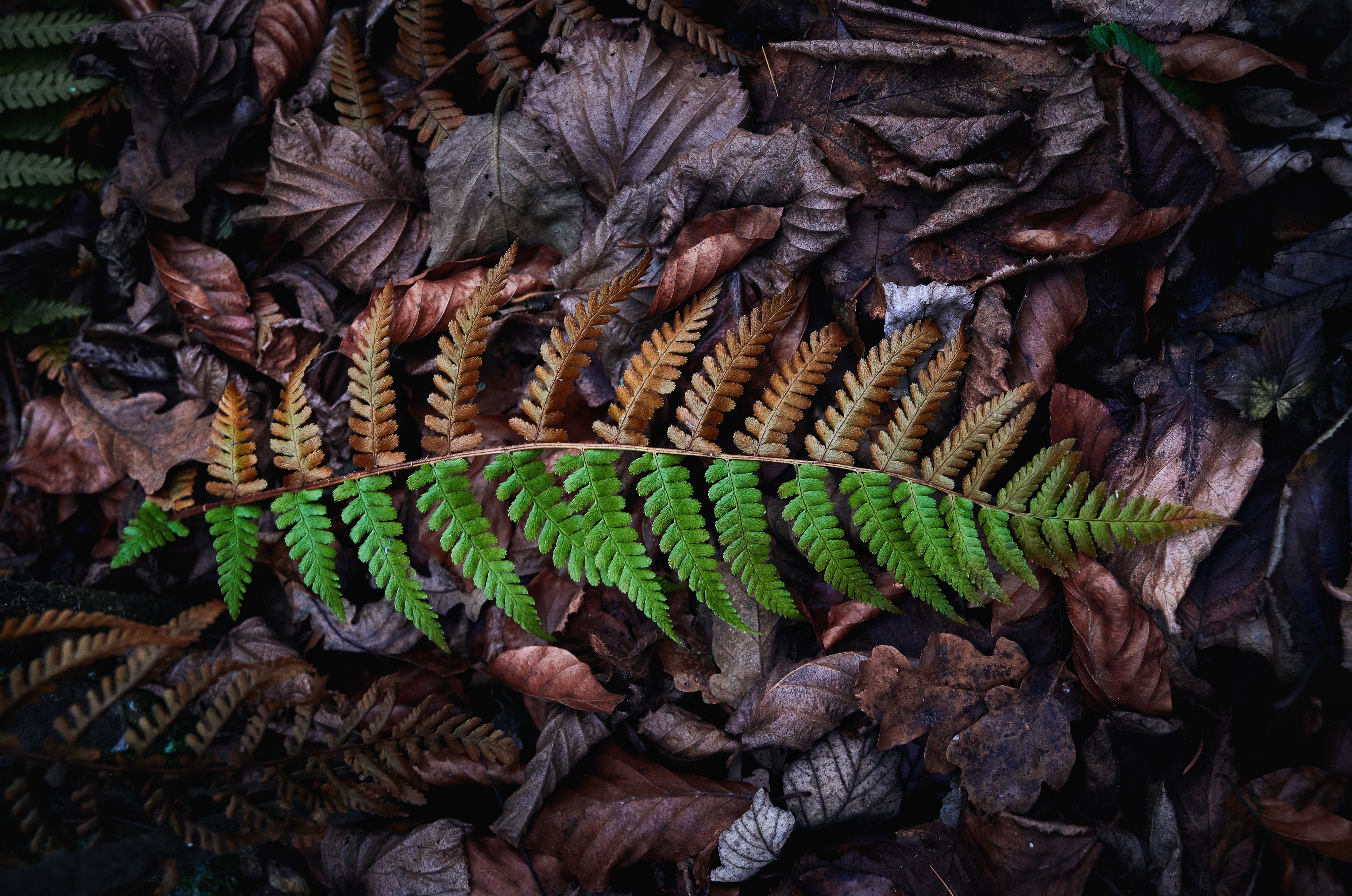
Yin and Yang – Photo by Mario Dobelmann on Unsplash
(Yin) Reserves
Coping with the virus requires reserves. To boil a kettle you need a kettle, water and a supply of energy. These are your reserves.
If you have an electric kettle it’s easy: plug it in, turn on and wait a couple of minutes.
If you don’t, find dry firewood, find tinder, arrange the firewood correctly, light the fire, get it going, place water-filled pot over fire and wait.
Unlike gas or electricity, it takes time and you may need more fuel.
In fact it’s surprising how much fuel you need and how long you must wait if you want it to boil.
Now think of your body, which is the kettle and its water. Firstly you are much bigger than the kettle. You have 8 pints or 4.5 kilograms of liquid in you and it’s arranged in various ways, not all easily accessible by the pump, your heart.
Your cells contain mitochondria which are the mini-furnaces you need. They use fuel in the cells and in your blood.
So all your reserves come from your body: the liquid, the fuel and the furnaces.
For effective fever, you need good fuel, healthy furnaces and a resilient body. That means it helps to be fit.
By ‘fit’ I don’t mean you can run a mile in 4 minutes, or lift 100Kgs in one arm. Those come from training and self-discipline but they won’t help you cope with fever on their own.
Yoga?
What about flexibility? Well, a flexible body is usually a young body or a well-schooled older body and both youth and yoga may help you stay fit. Certainly you’ll probably have less inflammation in your joints to worry about. Your system may be running more efficiently too, and an efficient system is what you need to cope with the virus with fever.
If you are interested in yoga you are probably interested in which foods are best for health, so you may also be someone who eats sensibly and doesn’t suffer the inflammations that come from a poor diet containing a lot of processed or sweetened food.
You probably don’t smoke, smoke being another source of inflammation.
Healthy Adaptability
Probably the nearest I can get to what I mean by 'fit' is when someone can do intensive exercise for a few minutes, raising blood-pressure, breathing rate, heart-beat and probably temperature. Then, after stopping, his breathing, blood pressure, temperature and heart-rate return quickly to normal. That shows his body can speed up and relax down fast, like a well-tuned car engine.
This is the equivalent of raising a fever then cooling down. Raise the fever to kill the bug, then cool off quick!
How to Build Reserves to Cope with the Virus with Fever
In Chinese medicine, your reserves are explained or classified in various ways. For more you’ll need to click on the links, but here’s a start:
- Your Lungs rule your skin, lungs and immune system including your bowels, where much of your immune system resides. Lungs also play a big role in managing the level of fluids in your body.
- Your Blood is made by interactions from several organs but it is ‘governed’ by your Heart.
- Long-term reserves, those that keep you going through emergencies, are managed by your Kidneys and often draw from your Jing-essence.
- Your daily needs are met from what you eat which is managed by your Stomach and Spleen
- Everything is kept moving along and cheerful by your Liver
Fortunately, to understand the rest of this page you don’t need to have looked up all those links! They just give you sources to consult if you want to know more about the reasoning behind the suggestions.
Preparing to cope
Again … to cope with the virus with fever you need good reserves.
I wrote a book on ‘yin deficiency’ several years ago. However, the difference there was that the yin deficiency arose after a draining event, possibly a high fever, or from overwork and other causes.
Here you want to accumulate reserves before your body enters battle! What can you do to help yourself survive the fever and quell the invader?
Four Steps to Coping with the virus with Fever
- Reduce sources of inflammation
- If suffering from inflammatory-type disease, and the possibility of being cared for when ill in hospital is remote, stock up on anti-inflammatory medicines
- Take steps to improve your health
- Find out how to increase your yin reserves
In more detail -
1/ Don’t overlook this one!
Your Mind is the source of your biggest inflammations. Resentment, envy, frustration, anger, grief, fear, worry. We all get these from time to time, but the longer they persist, the more likely they are to be sources of illness, including inflammation. If you can, talk these things through with yourself or your partner. Prolonged fever will drain you and make you less able to resolve difficult issues later. If so, they’ll become chronic.

Photo by Natasha Connell on Unsplash
I wrote a whole book on how this form of stress affects you. See Qi Stagnation.
I include in this continued feelings of aggrievement, victimisation, revenge, discrimination, no matter how justified: the fact you maintain them in your thinking will incline your body towards heat.
Stress is implicated in many forms of ill-health, and can lead to heart disease and stroke.
2/ ‘Hot’ Foods.
Fever is, obviously, heating. Don’t make yourself more susceptible by over-heating yourself even before the invader arrives! If you don’t already know the foods that make you hot or worsen your inflammation, see what Chinese medicine lists as ‘hot-foods‘. Some may apply to you.
For example, herbs like Turmeric are often suggested for people with chronic problems. Turmeric is heating and drying, so if your chronic problem is cold and moist (and as such probably feels worse in cold, damp conditions) Turmeric may help - for a while. (See Primary and Secondary Actions for more on this.)
But if you are otherwise well, and are wondering what to take to help you ward off and cope with the virus, I would suggest you don't take Turmeric. There are different kinds of yang energy, one of which is heating, another is drying and a third is moving. To ward off disease, you don't want a body that is continually using resources to cool itself. Remember it is not the turmeric that warms but your body's reaction to it. So if you take turmeric - or something similar - your body will be 'goaded' into heating up a little (the primary action) but will then try to cool down again (the secondary action). As it does this, it uses yin resources which, ideally, you'll be needing plenty of should your body need a high fever to quell the 'flu-like invader.
However, herbs work in various ways. Root ginger, for example, warms your digestion and helps what is called your 'Spleen' energy. During a fever, and after it, you'll need a good digestion so ginger is quite a good herb to take - for most people, unless they already have excellent digestions.
And what about the old saying 'Feed a Cold and Starve a Fever'?
Keeping warm during a cold makes sense, if it's the kind of cold where you feel chilled. So stay in a warm bed and wear more - and by all means eat more 'warming' foods.
In a fever, your body is concentrating its energy on raising your metabolic rate and temperature. Giving it a huge meal is counter-productive because it diverts energy away from the fever. In any case, often you don't feel like eating, or drinking. But with the extra heat it creates, it also dries so you do need moisture. However, I differ from most advice when I suggest that you don't force down huge amounts of liquid (and certainly neither coffee nor alcohol, both of which are heating!). Instead, eat small quantities of something that will provide both energy and fluid. For this, consider my Clogstoun Congee!
3/ Your Lungs.
Atmospheric toxins are potentially inflammatory. We know how car fumes increase asthma. Even if you don’t have asthma you may be breathing air that contains smoke! And what if you smoke or vape? The act of smoking slightly stimulates your lungs, which has the effect of calming you.
(Your Lungs descend energy, hence the benefits of taking ten deep breaths when angry before taking any action.)
Trouble is, smoking puts carbon and carbon dioxide in your lungs, weakening their action. If you don’t know about the dangers of these, what with global warming, you haven’t been paying attention.
4/ Your Lungs ‘rule’ your Skin.
Many skin treatments are yin in nature, being moisturisers, emollients, anti-inflammatory, fillers, hydrogenating. That you need them, if not just for anti-ageing, suggests that the air you breathe and live in is drying and/or inflammatory. Do you perhaps just need more exercise in fresh air? It’s free!
5/ Food, especially sweet food.
That means sugar and all things sweet. Why?
Your gut is partly ruled by your Lungs. Simply put:
- Healthy lungs, healthy gut
- Unhealthy gut, unhealthy lungs
Further down this page are suggestions for how to increase the health of your gut, and therefore your lungs.
This part of the page is how to reduce the likelihood of inflammation in your gut.
Your gut contains, they say, up to 90% of your immune reserves. These are the ‘good’ bugs that help both to prevent disease and then to aid recovery. They help give you resilience.
It also houses plenty of the opposition. Probably, if you are healthy, the good bugs are always on top of the bad ones. But you can shift the balance the other way by feeding the bad ones what they crave and which will make them multiply and become stronger.
What do they crave?
Sugar and pretty well all things sweet or that quickly turn into sugar when eaten. Also, I’m sorry to tell you, many prescribed medications.
Read more at https://www.hyperbiotics.com/blogs/recent-articles/your-microbiome-on-sugar
When feeding on sugar your baddies produce:
- gas and bloating
- diarrhoea or unstable stool patterns
- toxins which inflame your gut, and you
- candida and, it seems, possibly many other diseases ranging from cancer to prostate problems
- phlegm, a very desirable residence for viruses
- a lack of energy
What about artificial sweeteners?
By the way, even artificial sweeteners are out, according to an article in Nature (https://www.ncbi.nlm.nih.gov/pubmed/25231862).
It seems they may also kill you! (https://articles.mercola.com/sites/articles/archive/2019/09/18/artificially-sweetened-drinks.aspx)
6/ Alcohol, especially excess alcohol, is warming, so inflammatory. It upsets the lining of your bowels reducing the quantity of probiotics living there.
How to Prepare to Cope with Fever
Let’s assume that, despite every precaution, you expect to catch the corona virus, or some other form of influenza.
Also, that once you’ve caught it, you will get a fever. Also, that it may last some days when your body will be dependent on its own resources as you cope with the virus with a fever.What can you do to increase your body’s resilience? How can you prepare to cope with the virus with fever?
But, before proceeding, please read my disclaimer!
... So - continuing ... This comes down to doing your best to strengthen your yin energies.
In this context, yin reserves include:
- your body
- its fluid reserves
- your calmness and mental/emotional equilibrium
- your body’s energy
What can you do?
1/ Sleep.
Recent research showed that people who slept longer were less susceptible to catching the common cold. (https://academic.oup.com/sleep/article/38/9/1341/2417959)
Good sleep is also when your body repairs itself. Get in a good habit soon. Poor sleep threatens many health problems including depression, heart disease, stroke, obesity and increased risk of dementia. Click for help with sleep.
2/ Reduce demands on your time. If you are less committed to others’ projects you won’t worry about not being able to support them so much.
3/ Money. Have you access to funds you’ll need for food and bills? Bills don’t care that you cannot work, they just need payment. You may need to order delivery of food if you or someone you trust can’t bring it to you.
4/ Organise funds for paying online, but keep cash handy too for repaying anyone who buys stuff for you.
5/ Career and work are stressful and demanding. Make early arrangements for when you are ill. In the meantime, try to reduce work stresses so you aren’t already tired even before you get the fever.
6/ Neighbours: talk to them to arrange at the least one call every day for mutual support and welfare while ill. Cope with fever together!
7/ Your skin is a major part of your body. Apart from your hands which, to avoid contagion you should wash in warm water and plenty of soap, why not let the beneficial bacteria on and in your skin multiply a bit? Too much washing weakens their numbers. Take your shower every second day instead of daily. Build up your skin’s armour! (Your skin is also managed by your Lungs so help one, help the other.)
8/ Few will agree with me on this one. Don’t wash your hair except in water! Given time, your hair will gradually develop a healthy biome of its own. To gain that, after washing and showering your usual way, (but not too often! see ‘skin’ above’) finish off with a brief cold shower or even, if you must, a warm shower. Spray the water first on your head hair, then on your body. That way, you’ll re-coat your clean skin with healthy bugs from your hair. In time, you’ll notice that your hair develops its own natural oils and sheen. If your diet and digestion are in good order, gradually your skin will improve and you’ll need to put less gloop on it.
9/ Stock up on products you can easily warm up and eat when your fever has abated and you are recovering.
10/ Prepare the room you’ll be spending most time in. Ideally it should be on the same level as your bathroom/toilet and kitchen. It should have potential for air to flow through it and you may want a fan, eventually. (But fans are not all good, nor are all cool drafts. See wind-cold.) You should have a telephone to call for help and to communicate with neighbours.
11/ Prepare a list of useful and emergency telephone numbers.
12/ If you already take anti-inflammatory medicines or know you may be in danger if feverish, make sure you have enough medicines to last you for a week or more.
13/ Some health groups are in more danger than others, including people over 65, very young children, pregnant women. I would add those who are very unfit, who take little exercise so never get out of breath, are very over or underweight and/or eat a poor diet. They should take advice as they prepare to cope with fever.
14/ How easily can you control your central heating? During the fever, you’ll probably want to turn it off. Later you’ll want it on.
15/ Aids to getting around. I’ve had ‘flu only once, and though it happened nearly 50 years ago, I remember it mainly for the dizziness/vertigo on movement. To get to the bathroom/restroom I had to crawl. Any motion made it and the nausea much worse. Do you have things you can hold on to when moving around?
16/ Buy a supply of rice, some onions and olive oil so you can make Clogstoun Congee to eat while febrile. You’ll also need some salt. This will give you energy and fluids as you cope with fever.
17/ Put a high stool in your kitchen, so you can rest on it while preparing food.
18/ Water. Normally you are advised to drink plenty of water during a fever, if not before and after. I don’t advise drinking lots before the fever arrives. This is because too much fluid weakens your Kidney Yang energy. Besides, you may urinate most of it out almost immediately. Better, I believe is to absorb the water at the same time as taking in energy in the form of Clogstoun Congee. This rice dish absorbs far more than its volume in water and seems to give it up gradually, along with its carbohydrate energy. You’ll need the carbohydrate to keep you going and the water it contains to nourish your Blood. Making Clogstoun Congee takes 20 – 30 minutes so is best done before the fever strikes. It will usually keep – chilled – for several days though is best made daily. (Yes, I know this is frowned upon because of potential poisons if rice dishes are re-heated but so far I’ve survived. But if you worry about this, make it new daily! And please read my disclaimer.) On the page linked you’ll see suggestions for other foods that may help you swallow if you are nauseous.
During the fever, yes drink plenty of warm water - not cold! The virus hates heat. And keep taking the Clogstoun Congee to preserve energy.
19/ Eat a healthy diet. The Mediterranean diet is good, containing many salads and vegetables, some grains, some protein (often oily fish, lightly cooked) and olive oil. Before and during a fever it is unwise to stick to a rigid diet for weight-changing or other health reasons. Certain foods contain what are called probiotics which, given the foods – ‘prebiotics’ – they prefer (next below) to live on, can flourish to your benefit and protection. These include many vegetables and foods that have been fermented like miso, kombucha tea, and unpasteurised sauerkraut. Tests on some probiotics suggest they may shorten length of stay if in hospital. (For example, a small study on Bifidobacterium bifidum R0071 resulted in a greater proportion of healthy days and a lower percentage of academically stressed students reporting a day of cold/flu.) However, starting today because you expect to be exposed to the coronavirus tomorrow will be too late! It takes time to build up viable gut health.
20/ Having cut out sugars and processed foods, both of which feed the baddies in your gut, start eating foods that delight the goodies down there.
- These 'prebiotics' (many of which are full of compounds and flavanoids that inhibit 'flu-like viruses, including coronavirus) include:
- Apples
- Asparagus
- Bananas
- Beetroot
- Blackberries
- Cashews
- Cranberries (unsweetened!)
- Cucumber
- Fennel bulb
- Garlic
- Grapefruit (the fibre and the juice)
- Green tea
- Inulin, which you can buy as a powder
- Jerusalem artichoke
- Kidney beans
- Leeks
- Lentils
- Most vegetables, especially those with plenty of fibre such as brassicas (broccoli, bok choi, kale, Brussels sprouts)
- Mushrooms
- Nectarines
- Oats (try my Clogstoun Porridgee!)
- Onions
- Organic, whole-husk psyllium is a simple way to stock up on the kind of fibre your beneficial fungi and bacteria love
- Pistachios
- Seaweed
- Shallots
- Spinach
- Spirulina
- Tomatoes
Prebiotics will, by the way, also improve your sleep patterns!(https://articles.mercola.com/sites/articles/archive/2017/03/16/prebiotic-foods-improve-sleep.aspx)
References
Vegetarians and vegans will be delighted that these foods exclude foods from animal sources.
Supplements?
Supplements are concentrated foods, sometimes very concentrated.
For some they may be hard to absorb. In effect you swallow an oval pill and eject a round one!
For others they may be unnecessary, in which case they can have unintended consequences, often not noticed, or at least not attributed to the supplements for some time.
For example, please do read my story of the man with migraine on my page on nutrition!
Having said that, the absence of some substances in your blood has been shown to make you more susceptible to infection. And some substances seem to increase your ability to fight or ward off a disease.
Some of these are used regularly in Chinese herbal prescriptions. (If so, the Chinese name is in italics.)
- Astragalus (Huang chi) (A Review on the Dietary Flavonoid Kaempferol. Calderon-Montano, Burgos-Moron, Perez-Guerrero, Lopez-Lazaro. Mini-Reviews Med Chem. 2011;11(4):298-344.) However, take with caution if suffering from hypertension. This is a great herb for a history of lung weakness. Ideally take it as part of balanced Chinese medicine formula when it will work better and more safely. Warning! Too much astragalus may cause insomnia because it is a yang tonic.
- Elderflower and elderberry: the flower is marginally better though smells appalling as it dries. Good for skin, lungs and head conditions, though better taken, in my opinion, for the actual symptoms than beforehand. It is drying and dispersing, so may be good for mucous damp conditions. (Nutraceuticals have potential for boosting the type 1 interferon response to RNA viruses including influenza and coronavirus. McCarty, DiNicolantonio. Prog Cardiovasc Dis. February 2020.)
- Licorice (Gan Cao) - but should be avoided if you have hypertension = high blood pressure, unless taken in a Chinese herbal prescription when it should be balanced by other herbs
- Fungi - medicinal mushrooms such as Reishi, Shiitake, Coriolus, Maitake: be careful of dosage here!
- N-Acetyl Cysteine NAC: this has a special place as it supports production of glutathione, which strongly supports lung health. (An increased need for dietary cysteine in support of glutathione synthesis may underlie the increased risk for mortality associated with low protein intake in the elderly. McCarty, DiNicolantonio. Age (Omaha). 2015;37(5):96.)
- Selenium - foods containing this include egg, barley, sunflower seed, sardine, shiitake, haddock, cod, ham (ideally from organic sources), salmon and ramen. (See Biological activity of selenium: revisited. Wrobel, Power, Toborek - Adv Nutrition 2019; 10(4): 696-710)
- Zinc: eat lots of nuts, like Brazil nuts, giving you the benefits of the other oils and nutritional benefits of the whole food, rather than a concentrated form of it. Many studies have found zinc a vital nutrient for antiviral immunity. ( The Role of Zinc in Antiviral Immunity. Obeid, Ahlenstiel, Ahlenstiel. Adv Nutr. 2019;10(4):696-710. )
- Don't forget Vitamin C - but preferably take it in the form of fruit with all the other nutrients the whole food contains.
Get Beneficial Treatment Beforehand
If you already enjoy the benefits of regular treatment such as massage, or you find acupuncture or similar keeps you well, make sure you get regular sessions throughout the ‘flu season.

They won’t guarantee freedom from infection but they may help you to cope with the virus with fever better and convalesce faster afterwards.
I choose these two therapies because massage is soothing and steadying (yin in nature) and acupuncture is balancing (of yin and yang).
Likewise, good homoeopathic treatment should keep your body in the right condition. Further down the page are suggestions for remedies that are thought helpful.
If the massage, or other treatment you receive makes you feel very sore for several days afterwards, it is probably stirring up underlying inflammatory responses and, for the purposes of THIS page, may be non-conducive.
Minutiae of Fever
As you cope with the virus with fever what might you experience? Here’s a list of the kinds of symptoms people often get as they cope with fever. Let’s hope you don’t get them all!
- Yang If you have ever suffered from heat-stroke, you may remember how impossible it is to cool down: you feel burning. Or suppose you sit in a very hot bath for too long; it becomes intolerable. In bed, if you are too hot, you get restless, toss about searching for a cool area, or stick your legs out. But with a fever of the kind your body needs to cope with its invader, it may need to maintain the fever for some hours. Let’s hope it doesn’t need it for days! Usually a few hours is enough.
- Yang is hot and restless. Small children are usually yang, They move a lot, they make a lot of noise, they are demanding and they have hot little bodies. In a fever, you become a bit like that. Heat comes out as redness, dryness, thirst, restlessness and complaints. Also, reduced attention span. (All yang. Who might this remind you of?)
- Mind Yang in excess makes thoughts rush, and can produce vivid dreams and even delusions.

Dreams – Photo by Makenna Entrikin on Unsplash
- You become angry, complaining, desperate for relief. You remember why medications to quell fever and reduce discomfort are so attractive. Ideally, if you want your fever to be fast and effective, avoid such medication.
- Head Your head is at the most yang end of your body. It gets hot, headachey and dry. Out of it come complaints.
- Scalp gets super-sensitive.
- Ears develop noises, tinnitus. Loud noises are painful.
- Eyes go red or dry: yellow mucus may collect. Bright light is intolerable.
- Mouth goes dry, thirsty.
- Saliva is reduced making eating and speaking difficult.
- Mind is intolerant, belligerent, opportunistic.
- Vertigo/Dizziness You may get this all or some of the time. It can accompany nausea.
- Breathing Lungs feel dry and hot. Air doesn’t feel cool enough. It may become sore to breathe or cough. (Beware onset of pneumonia with sore chest on coughing or breathing, and fever.) Mucus may be coloured, yellow or green, and thick: even blood-stained. Although this kind of mucus, Lung Phlegm Heat is a recognised syndrome in Chinese medicine and has been so treated for millennia, you may wish to discuss your options with a doctor. If it is of bacterial origin, he may have antibiotics for it.
- Breathing may be an effort – difficult to breathe. You may feel short of breath even when not moving. Climbing stairs may take time and frequent rests. For more, read Lung Heat.
- Stomach Normally when you swallow, food descends. But during fever, yang pushes things upwards so you may be nauseous and unable to stomach, let alone swallow food or water. It may help to breathe deeply a few times before you try to swallow.You’ll want food and fluid to be cool. However, though you may crave it, keep off ice-cream: it’s too cold. Lots of lukewarm green tea is often best. NOT COFFEE! (Too yang!)
- Bowels Excess yang energy can work here in two ways. The hot way is to constipate you: dry , hard stools, difficult to evacuate. But the other, ‘restless’ way is to give you foul-smelling diarrhoea. (Bad smell comes from the heat: frequency and urging are the restless aspect of yang.) The heat can cause dryness and a rash around the anus. (Teething babies know all about this.) By the way! Don’t be too ungrateful for how your body uses diarrhoea to unburden itself. Indeed, in Chinese medicine, cathartics force your bowels to move and are often given to clear heat.
- Skin Cool – tepid – flannels on forehead, upper back, neck, underarms and behind your knees are the best places, but of course, if they reduce your discomfort they may also be reducing your fever, the point of which was to kill the invader. So, maybe try to resist too much cooling.If you have skin already tending to dryness and heat, the fever will probably worsen it. For those who have dryness because of inefficient circulation, the fever may help!
- Circulation If you are normally a cold person, meaning you usually have cold hands and feet, this fever may change that in the future, because in a way it burns away old deposits in the ‘pipes’, your veins and arteries.
- Heart All this yang energy can strain your heart. To keep your blood moving round your heart beat increases. Up to a point that is good, like revving a car engine: you want it to be able to rev freely. But unfit or old hearts may suffer: for them there is potential danger. Such people would ideally have been on a good diet beforehand, including foods containing omega-3 oils, vitamins K2 and D3, enough Magnesium and so on. These or prior treatment for Blood stasis may help to avert danger.
- Suppression It is possible to reduce fever using appropriate medication. But in that case your body won’t achieve its objective, possibly allowing the invader or its friends to re-group and attack again. If you suppress it too often, you may end up with chronic symptoms, of tiredness, catarrh, depression and stiffness. You may also develop post-viral fatigue.
- As so often with yin and yang: yin actions are slow, yang are fast. You need both for health. If you suppress yang, you end up with more yin or with diminished yang going on for longer.
Click to read more about Suppression.
Overall, to cope with the virus with fever you need resilience. That’s what this page is about. That resilience will serve you well in other aspects of life after you’ve had the opportunity to cope with the virus with fever!
Treatment During Fever or While Contagious
1. Acupuncture and Chinese medicine
During treatment, if the disease is classified as being due to Wind-Heat at the Wei or Defensive level …The treatment principle in Chinese medicine is to
- release the Exterior,
- expel Wind/Heat and
- restore the descending and diffusing energy of the Lungs.
There are both acupuncture and herbal formulae for this.
Note on the treatment principle. The rest of this page talks about having a ‘good’ or effective fever, so that your body kills the invader and, one hopes, develops antibodies to it. That is different to the treatment principle set out above.
- ‘Release the Exterior’ is to allow your body to throw out the invader
- Expel Wind/Heat is to move the invader to the outside
- Restore the descending and dissipating energy of the Lungs is to strengthen your Lungs and their action as in providing energy, helping your breathe properly, maintaining your immune force and moisturising your skin etc
I do not know if this is what Chinese doctors of traditional Chinese medicine are currently doing in China, but it will be something along these lines.The problem is that, in the West,
- we don’t have enough practitioners to provide a service to everyone in need
- most qualified practitioners are self-employed
Also, I doubt whether we could obtain sufficient supplies of the herbs for the kind of herbal formulae needed. Acupuncturists may have difficulty running their clinics if clinics are seen as places where ‘flu like diseases are spread.
Notice! … nowhere in the above Chinese medicine treatment principle does it mention antibodies or an invader, concepts not developed until much later. If your understanding of disease centres purely around virus and antibodies it cannot easily encompass a completely different way of looking at disease, one based on energy.
So, on this page, I am not giving herbal formulae or acupuncture prescriptions as most people could not make use of them.
Warnings your Fever May be Dangerous

Photo by Jarosław Kwoczała on Unsplash
For some people, a fever is very healthy. But not all. If the following occur, you may need medical attention or advice. They suggest that your body is not able to cope with fever as well as you’d like.
NB Bear in mind that health providers put themselves on the front line and may be the first to succumb. They may be in no position to help you.
Help? Help may come from the brave who have not succumbed and from those who have recovered. These may not be medically qualified or capable. Survivors may also be exhausted!
Warning Signs:
- Your Mind is your most valuable resource: if you become confused, disorientated or delusional (assuming you recognise this in yourself), seek help.
- The fever extends beyond 3 days and you are exhausted and cannot eat or drink
- Your fever (you being an adult) goes beyond 41C or 105F for more than a few hours. The danger here is that your body stops being able to control how hot it gets. Too high for too long and it affects your mind and can damage your heart.
- You start vomiting and cannot stop
- You get chest pain when breathing
- Breathing becomes difficult or very painful
- If your child is feverish, it is best to seek advice, even though children naturally become feverish very quickly and then get better just as fast. Usually doctors get worried if children develop fevers much over 39C or 102F for a few hours and certainly if over 24 hours. Their concern is this may lead to convulsions (seizures) which damage the brain.
- Whilst feverish, you develop a rash which starts spreading across your body or limbs. (Rashes after fevers are less worrying.) Rashes like this occur more often in children.
- Acquaint yourself with the symptoms of meningitis, particularly the headache, stiff neck and fever. Sometimes a rash too. In anyone gets this, especially a child, this needs urgent medical attention.
Cope with Fever - Afterwards
1/ Energy
Producing and maintaining a fever takes energy: your energy! After a good fever, you’ll be tired: well, exhausted.You must rest. In fact, that is probably all you can do.
2/ Food? and Water?
Partly you will have used up some of your jing-essence. Often an indication of this is backache, worse standing or walking slowly, but there are other symptoms, see either Kidney yang deficiency or more likely Kidney yin deficiency. So try not to stand for long. Avoid walking slowly. (So don’t go shopping in IKEA! I’m convinced people are seeded into the shop through the day and paid, by results, to go slow. Work out for yourself who is paid most!)
But you’ll need food. I suggest my dish Clogstoun Congee to begin with, to increase your energy and fluid levels. It is gluten free and fairly simple to make and nearly everyone can absorb it safely. Later move on to stews and cooked foods. Suggestions here.
Be sure to chew well.
Make sure what you eat is cooked and still hot when eaten
Always eat food that is warm when eaten. Chew it well. Eating food warm helps your Stomach energy.
Avoid what are classified in Chinese medicine as ‘Cold foods‘.
Now is the time when you may start enjoying again some of the weaker ‘hot foods’, including ginger and mild spices. You’ll know if you go too far because your stools will become urgent, smelly and loose: ‘the runs’.
Whereas if your stools are difficult to retain, odourless and runny, you are probably eating too much ‘cold food’. For example, too much fleshy, juicy fruit might produce this.
Are there other ways you can improve yourself? Almost certainly your Lungs will have become somewhat yin deficient.There are some foods and herbs that may help this Lung Yin deficiency, but please don’t eat JUST these foods. For health, you need balance, and with a balanced diet every food contributes something to the whole. The Mediterranean diet is good in many ways.
So, if you think you may have Lung Yin deficiency, you may want, cautiously, to try some of the following, unless you already know they don’t suit you. Bear in mind that these foods or herbs are for yin deficiency: yin is generally cold and moistening. That means these food have a cold energy.
Although you have just suffered a fever, you have also burned a lot of fuel and are tired, so your warming energy is depleted. Too many cold-type foods can extinguish what warmth you have remaining, so although these foods have a yin quality, too many of them may be harmful. Be sure to take warm foods too!
First please read my disclaimer!
Lung Yin foods:
- American ginseng (different from Chinese ginseng)
- Apple
- Apricot
- Asparagus
- Avocado
- Avens (oats, hence Clogstoun Porridgee)
- Bamboo shoot
- Banana (but banana is a cold food, so don’t have too much at a time. I once had a very good banana recipe with rum and ginger but sadly, I lost it. The warmth of the ginger compensated for the coldness of the banana; the rum made you feel very happy about it.))
- Barley
- Borage
- Butter, from cow’s milk
- Cantaloupe
- Cheese (cottage) from cow’s, sheep’s or goat’s milk
- Chicken egg
- Comfrey (though some countries ban this)
- Cordyceps sinensis
- Cucumber (also a cold food, so take small quantities or with other, more warming foods)
- Duck
- Duck egg
- Eucalyptus
- Goat’s milk
- Honeydew melon (also a cold food, so not too much until you are better)
- Irish moss
- Loquat
- Lungwort lichen
- Marshmallow
- Mulberry
- Mullein
- Nettle (look up how to prepare this as a vegetable)
- Olive
- Onion
- Orange (too many oranges can produce a rash, however)
- Oregano
- Pear (there are recipes for cooked pear juice that are famous for Lung yin deficiency)
- Slippery Elm
- Tangerine
- Green tea, especially jasmine green tea
- Yogurt (unsweetened, preferably organic, definitely NOT pasteurised, and don’t take too much! Yogurt is a very cold food. That’s why Indian restaurants often give you some Raita or Lassi to balance the heat of the curry!)

Shopping! – Photo by Şahin Yeşilyaprak on Unsplash
Of course, this list doesn’t cover all Lung yin tonics. And many of the items listed help other organ energies too.
Chinese Herbs
In addition there are Chinese herbal prescriptions, but it is easy to get these wrong if self-prescribing, or to continue to take them even though they aren’t really helping, making them an expensive waste of time.
Too Much Yin Food causes diarrhoea
Also, too much yin food/herbs, being moistening and cooling, eventually gives you diarrhoea of the sloppy, cold variety: this is the kind that just passes through you without saying even Hullo to your blood, so you gain nothing from having taken it!
Too much food Don’t overeat, as you recover. A little and often is better!
Fast Food? Don’t eat it! Especially don’t eat it if you’ve had the ‘flu jab, because fast foods dissipate its effect! For more and as to which fast foods they mean, see https://www.wddty.com/news/2019/04/fast-foods-make-flu-jab-even-less-effective.html
3/ Warmth OK! You’ve learned to cope with the virus with fever, but now, with reduced reserves, you may feel cold. Wear lots. Stay warm in bed if you can, but not so you lose strength in your back and abdomen. You need to move around a bit, even if just moving from room to room.If you go outside, be very sure to wrap up well round your head and neck. Invasion by wind-cold is a real possibility.
So this is when you may want to turn up your central heating again.Also, there is a simple set of movements which flex your spine and can help get you moving. You need no equipment except your body and a space to do them indoors. They increase your heartbeat only a little and may help your breathing. For most people they are very safe, if done at first with caution. They are mildly warming.I’ll put up a video of me doing them. Soon. Before doing them, please read my disclaimer!
4/ As energy returns, find out who in your neighbourhood is suffering the acute phase. They could probably do with your help.
But…5/… I am assuming you had a good fever!If you had to suppress it, and never let it rip through and burn out the invader, or it never happened, you may be susceptible to a repeat performance as the bug regroups and returns to the attack … or one of its close friends or successors gets ideas …If that happens soon after the invasion you will have less reserves to repel it. And beware getting cold and tired when outside, because that makes you more susceptible to wind-cold invasion, mentioned above.
6/ Treatment for Faster Recovery !
Get some treatment! What would your acupuncturist do to help your recover?
First, he’d want to make sure you didn’t have any remaining Lung Heat. After all, there’s no point putting the furniture back if the house is still on fire! He’s worried about your susceptibility to eg pneumonia!

Burning House – Photo by Ash Edmonds on Unsplash
He’d check your pulse. If it’s still ‘rapid’ or ‘floating’ he might suspect that, even if your fever has long gone, you still have some burning embers left behind.
Then he’d check your tongue. If still red or if it still has a yellow coating, these also suggest Heat.
There are acupuncture treatments to deal with this continuing Heat – also Chinese herbal prescriptions.
If, to prevent a dangerous reaction to the disease, you took anti-inflammatory medicines (including antibiotics – perhaps to forestall pneumonia) – he might be worried about something called a remaining pathogenic factor. There may be things he can do for that, too.
Then he’ll be interested in any remaining symptoms, such as a cough. As you’ll have found out, a persistent cough not only drives everyone mad but can disturb sleep, which you desperately need to help you recover.
Acupuncture for Chronic Cough is nearly always successful, though you may need several treatments. (I once gave my wife treatment at 4am for a deep, racking cough she’d had for several days. She went straight to sleep, and so did I. However, in case you wonder, few acupuncturists are available to give treatment at 4am. If available, they are probably a bit peculiar.)
But, having cleared any remaining Lung Heat, your acupuncturist will want to deal with any Lung Yin deficiency. These are your deep water table of reserves, needed for ongoing strength, immune defences and equanimity. Of course there are acupuncture treatments for this, though you’ll need several of them. Here also is where his knowledge of diet and Chinese nutritional medicine comes in. Some of that information is listed above but he may be more specific. Herbs too.
Action to consider after reading my disclaimer
Homoeopathic Remedies to consider
This page has mainly concentrated on the way Chinese medicine deals with fever of the kind you'll probably get with Covid-19 or 'flu.
But this is a homoeopathic site! So are there remedies generally considered by experienced homoeopaths either as prophylactics or to treat the acute symptoms or afterwards?
Before reading on, please - again - read the disclaimer.
Homoeopathic prophylactics
Please realise that the evidence for homoeopathic prophylactics is anecdotal, not statistical, and does not meet the requirements set, for example, by NICE or the Advertising Standards Authority. By even mentioning them we could get into trouble.
However, this latest coronavirus appears to come from bats. SARS and other 'flus came from chickens, a bird, and a well-known remedy often taken by homoeopaths in the belief it might 'arm' themselves better against 'flu for that came from a bird: oscillococcinum. Whether it works against Covid 19 is questionable.
The best homoeopaths recommend constitutional treatment before exposure.
Older homoeopathic literature, such as books by Dr John Henry Clarke, suggest a dose, weekly, of Bacillinum 30 and Influenzinum 30 together.
In addition, Clarke, when 'you are exposed to infection or when epidemics are about' suggests Arsenicum Album 3, every 8 hours.
Homoeopathic Remedies during infection
First, homoeopathic remedies during infection must depend on the individual symptom picture. The following remedies often fit the common 'damp-heat' symptoms of Chinese medicine, but what are called 'strange, rare or peculiar' symptoms in a patient always trump remedies that cover 'common' symptoms.
Secondly, the remedy would change depending on the stage reached. In the early stages of invasion by Wind-Cold and Wind-Heat, you are chilled and averse cold. Later when the disease penetrates to the Qi level, you are too hot and desire cold. Usually the remedy chosen would be completely different.
Remedies that often fit, to help you cope with the virus include:
- Gelsemium
- Natrum Muriaticum
- Nux-Vomica
- Eupatorium perforatim
- Belladonna
- Nitric Acid
- Naja
- China
- Phosphorus
- Baptisia
- Glonoine
- Merc Sol
- Bryonia
- Ipecac
Afterwards, as you convalesce, the picture changes again. For instance, if you have lost a lot of fluid, perhaps
- China
- Arsenicum Album
If damp symptoms persist, perhaps -
- Natrum Sulph
If there is nervous debility, perhaps:
- Calc Phos
- Kali Phos
- Ferrum Met
What potency and frequency?
- The clearer and more strongly the symptoms appear, the higher the potency: 30, 200, 1M or higher. Can be taken every 3 hours until there is change. As beneficial change occurs, reduce the frequency and consider changing the remedy.
- The lower the vitality, the lower potency and more frequent the remedy: 6x twice daily in the case of what are called 'tissue' salts like Calc Phos.
If unsure, you might consider herbs until you could see a homoeopath.
And talking of herbs, this is where sage tea (made from the Western herb Salvia officinalis) may be useful, as it is both a Qi tonic and replenishes deficiency of your Lungs. However, before you take any such action I refer you to my disclaimer!
That’s why it’s best to get treatment from someone professional, knowledgeable of YOUR particular needs! So gradually you improve until … having learned how to cope with fever …
7/ … Eventually, you go out more, you meet friends, you eat normally …
Welcome Back!

Photo by Peter Conlan on Unsplash